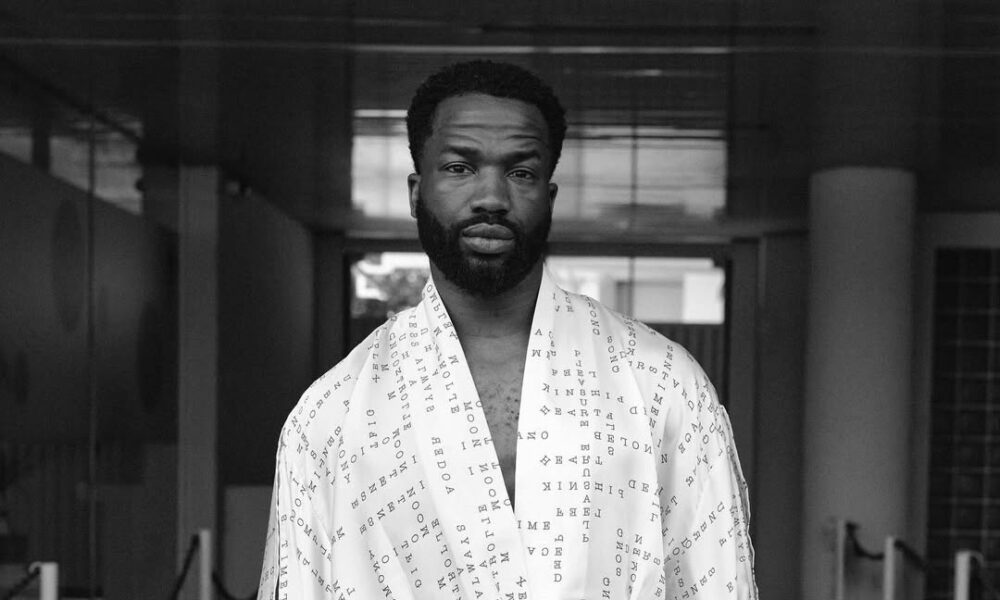Cairo Film Fest Hits New Heights: 'Dragonfly,' 'Once Upon a Time in Gaza' Victorious as Co-Production Drives Record Year

The 46th Cairo International Film Festival (CIFF) concluded with an emotionally resonant ceremony, successfully blending a poignant acknowledgment of regional realities with a vibrant celebration of bold new cinematic achievements. Held at the iconic Cairo Opera House, the gala gathered a diverse audience of Egyptian, Arab, and international filmmakers to witness the distribution of its prestigious awards. The highest honor, the Golden Pyramid, was bestowed upon Paul Andrew Williams’ "Dragonfly," while Tarzan and Arab Nasser’s "Once Upon a Time in Gaza" emerged as another significant award-winner, securing multiple accolades.
The festival commenced on a powerful humanitarian note, emphasizing cinema's role in documenting truth. Before any awards were announced, a profound moment of solidarity occurred as a photograph of six-year-old Palestinian child Hind Rajab was displayed, accompanied by audio of her final phone call before her tragic death in Gaza. Festival president Hussein Fahmi, visibly moved, underscored the vital responsibility of cinema to preserve true stories and ensure that children lost to conflict are remembered as real human beings, not mere statistics. This message was reinforced by the festival's closing film, Kaouther Ben Hania’s "The Voice of Hind Rajab," screened immediately after the awards ceremony. Further showcasing its commitment to regional collaboration, Fahmi also announced a new partnership with Qatar Media City, linking Cairo with the Doha Film Festival, hailed as an "exciting moment for Arab cinema."
Paul Andrew Williams' "Dragonfly," represented internationally by AMP International, received the festival's top prize, the Golden Pyramid. Jury president Nuri Bilge Ceylan commended the film for its "profound exploration of solitude, memory, and human resilience" and its "delicate storytelling." The film's leading actresses, Andrea Riseborough and Brenda Blethyn, shared the best actress award, building on their joint recognition at the Tribeca Festival. Set in a British coastal town, the drama intricately explores the evolving relationship between two neighbors, Colleen and Elsie, particularly after Colleen intervenes due to concerns about Elsie's caregivers.
"Once Upon a Time in Gaza," directed by the Nasser brothers, achieved three significant victories, securing the Silver Pyramid for best director, the best actor award for Majd Eid, and the best Arab feature film award. This success further solidified Cairo's reputation as a crucial platform for emerging Palestinian cinema. The film had its world premiere in the Un Certain Regard section at the 78th Cannes Film Festival, where Tarzan and Arab Nasser previously won best director. Distributed by Sophie Dulac Distribution, the drama is set in 2007 Gaza and follows Yahya, a young student, who forms a friendship with Osama, a charismatic falafel shop owner. Their side business, delivering sandwiches while discreetly dealing small amounts of drugs, eventually draws them into a dangerous confrontation with a corrupt local officer.
Other notable distinctions in the international competition included Iranian filmmaker Alireza Khatami's "The Things You Kill," which earned both the Naguib Mahfouz best screenplay award and the FIPRESCI Prize. The film centers on a university professor investigating his mother's suspicious death, a search that increasingly involves him and his quiet gardener. Lebanese filmmaker Nicolas Khoury was honored with the best documentary film award for "Souraya Mon Amour," a reflective piece that revisits artist Souraya Baghdadi’s relationship with her late husband, filmmaker Maroun Baghdadi, through archival footage and contemporary meditations on grief and memory. The Youssef Sherif Rizkallah audience award went to "One More Show," a poignant documentary by Mai Saad and Ahmed Al Danaf. Al Danaf, joining the ceremony remotely from Gaza via an iPad held by Saad, highlighted the film's depiction of the Free Gaza Circus performing for displaced children amidst bombardment, showcasing artistic resilience in wartime. The Bronze Pyramid special jury prize was awarded to "As We Breathe" by Seyhmus Altun, and Mathieu Giombini received the Henri Barakat Award for best artistic contribution (cinematography) for "Sand City."
In the Horizons of Arab Cinema section, Sara Francis’ "Dead Dog" received top honors, praised by jury member Nadia Dresti for its immersive cinematic experience and audacious aesthetic in exploring a complex relationship. Saudi documentary "Anti-Cinema" by Ali Saeed was recognized with the Salah Abu Seif special jury prize for its examination of Saudi cinephiles' experiences without theaters and its spotlight on overlooked pre-1979 film culture. Egyptian filmmaker Yasser Shafeiy won best screenplay for his debut feature "Complaint No. 713317," a drama about a retired couple's appliance repair ordeal that uncovers daily pressures and injustices. Afef Ben Mahmoud won the best acting award for "Round 13." Other awards included the Shadi Abdel Salam Award for best film in the International Critics’ Week for Alex Bakri's "Habibi Hussein" and the Youssef Chahine Award for best short film for Abdellah Taïa’s "Cairo Streets."
Beyond the awards, a significant portion of the festival's momentum focused on its industry component, the Cairo Film Connection (CFC), which has solidified its position as a leading pitching and financing hub in the region. Under the direction of Rodrigo Brum, CFC distributed over $200,000 in cash and in-kind support, attracting partners from Europe, Africa, and the Gulf. Brum succinctly articulated its mission: "Every project here expands the cinematic map of the Arab world." Industry prizes were awarded to a diverse range of projects, including slots at Durban Film Mart, Medimed, Malmö Arab Film Festival, and Amman International Film Festival. Technical and post-production support from various companies like Cinetech and Shift Studios was broadly distributed, reflecting CFC's dedication to broadening access. Cash awards came from multiple sources including Special Touch, Pathé Touch, and the Red Sea International Film Festival, which split its top prize. The top honors for projects were "The Side Effects of Trusting Life" for best project in development and "Revolutionaries Never Die" for best project in post-production.
This year, CFC was significantly bolstered by a robust Cairo Industry Days program, featuring 22 market booths, 55 ProMeet sessions, and 380 industry participants, further cementing Cairo's role as a regional co-production hub. With 153 films from 55 countries, artistic director Mohamed Tarek curated an edition that emphasized intimate international titles, new Arab voices, and a strengthened industry market. The steady turnout and expanded programming highlighted increasing momentum for CIFF as it reaffirms its prominent place in the region's cultural landscape.
One of the most engaging discussions during Cairo Industry Days revolved around co-production, emerging as a strategic theme for the festival. A candid panel titled "Co-production: Between Identity and the Market" brought together filmmakers and producers from across the region and Europe to dissect the realities of cross-border collaborations. Egyptian producer-director Ali El Arabi reminded attendees that co-production is not a universal solution but rather depends on specific project needs, whether for financing, expertise, or shared creative sensibilities. Ziad Srouji, Senior VP of business and content development at Rise Studios, emphasized the commercial risks inherent in co-production deals, noting that current market shifts and tightening budgets necessitate business-driven decisions alongside artistic ones. Jordanian producer Rula Nasser highlighted that international partners aren't always essential, as some emerging filmmakers' works thrive by staying rooted in local contexts.
The evolving financing landscape was also a key point, with Norwegian producer Dyveke Graver observing that contemporary projects often require four or five co-producers to cover various territories and distribution pathways, a stark contrast to the one or two formerly sufficient partners. Egyptian filmmaker Mayye Zayed shared her experience with creative tension during co-production, where some European partners pushed for rushed schedules or stylistic changes that conflicted with her observational approach, ultimately strengthening her resolve to protect her artistic vision. A recurring theme was the paramount importance of establishing a stable core team before expanding into co-production. Nasser stressed that the director-lead producer relationship is the creative anchor, regardless of the number of partners. Graver concurred, advising producers to thoroughly understand a project’s DNA before approaching external collaborators, likening the ideal co-producer to "someone you’d actually want to have dinner with," emphasizing personal compatibility.
Panelists also delved into the political nuances of international funding, acknowledging that some European cultural funds come with editorial expectations but also provide crucial access to festivals and new audiences. Nasser pointed out that countries like Jordan often rely on European post-production services out of necessity, without necessarily compromising creative identity. A collective warning was issued regarding contracts: El Arabi spoke of learning hard lessons on rights and revenue splits, and Nasser admitted to limited copyright understanding in her early projects. The consensus was that legal literacy is now a fundamental skill for producers. The discussion also addressed why Arab-Arab co-productions are less common than collaborations with Europe; Nasser humorously attributed this to regional producers "loving each other too much," leading to disputes over shooting locations, premiere rights, and broadcast priority, decisions that carry disproportionate weight in smaller independent cinema markets.
Amplifying the festival’s focus on co-production was the launch of Project Salon, a new digital platform developed by CIFF partner Co-Production Salon, a UAE-based networking hub. Introduced at the Cairo Film Market, this tool allows experienced producers to upload comprehensive project materials—including scripts, budgets, schedules, and pitch decks—and specify their desired partnerships, from co-financing to distribution. To ensure professional standards, projects must already have secured at least 10% of their financing and come from producers with at least one commercially released work. The platform aims to streamline the process of finding suitable partners, centralizing pitching, matchmaking, and financing opportunities for the Middle East and North Africa industry. Founder Heba Korayem envisions Project Salon as a bridge between creative ambition and market access, empowering Arab producers to compete more confidently on the international stage. This initiative aligns perfectly with CIFF’s broader strategy, as the Cairo Film Market hosted over 20 Arab and international institutions, and CIFF formalized a strategic partnership with Co-Production Salon to expand MENA co-production opportunities. Together, the insightful panel discussions and this new infrastructure signal an industry at a turning point, where Arab producers are actively pursuing partnerships that safeguard artistic identity while simultaneously broadening international reach. Co-production, traditionally seen as primarily a funding lifeline, is now being strategically reframed as a tool to affirm cultural authenticity and unlock new markets, positioning CIFF to lead a new phase of deliberate, confident, and increasingly region-driven collaboration.
You may also like...
Bundesliga's New Nigerian Star Shines: Ogundu's Explosive Augsburg Debut!

Nigerian players experienced a weekend of mixed results in the German Bundesliga's 23rd match day. Uchenna Ogundu enjoye...
Capello Unleashes Juventus' Secret Weapon Against Osimhen in UCL Showdown!

Juventus faces an uphill battle against Galatasaray in the UEFA Champions League Round of 16 second leg, needing to over...
Berlinale Shocker: 'Yellow Letters' Takes Golden Bear, 'AnyMart' Director Debuts!

The Berlin Film Festival honored
Shocking Trend: Sudan's 'Lion Cubs' – Child Soldiers Going Viral on TikTok

A joint investigation reveals that child soldiers, dubbed 'lion cubs,' have become viral sensations on TikTok and other ...
Gregory Maqoma's 'Genesis': A Powerful Artistic Call for Healing in South Africa

Gregory Maqoma's new dance-opera, "Genesis: The Beginning and End of Time," has premiered in Cape Town, offering a capti...
Massive Rivian 2026.03 Update Boosts R1 Performance and Utility!

Rivian's latest software update, 2026.03, brings substantial enhancements to its R1S SUV and R1T pickup, broadening perf...
Bitcoin's Dire 29% Drop: VanEck Signals Seller Exhaustion Amid Market Carnage!

Bitcoin has suffered a sharp 29% price drop, but a VanEck report suggests seller exhaustion and a potential market botto...
Crypto Titans Shake-Up: Ripple & Deutsche Bank Partner, XRP Dips, CZ's UAE Bitcoin Mining Role Revealed!

Deutsche Bank is set to adopt Ripple's technology for faster, cheaper cross-border payments, marking a significant insti...


